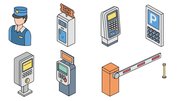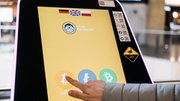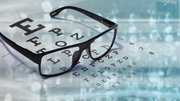Article
Are your employees money hungry?
Kiosks are helping employees track fitness goals while cutting company health-care costs.

February 7, 2011
It pays to lose weight — literally — if you work for a company that incorporates incentaHEALTH's kiosks into its wellness program.
The HEALTHspot kiosks, which use a camera and biometric measurements, is the centerpiece of the program designed to encourage employees to stay healthy.
"For example, if an employee signs up for our program and achieves a 15 percent weight loss, they will get paid on a brightly colored check when they weigh in at the HEALTHspot kiosk every 90 days," said Todd McGuire, chief technology officer. "The cash incentive reinforces the new, healthier behavior change. The program pays incentives ranging from $15 to $150 per quarter to all employees who are successful."
This could add up to employers paying their staff a lot of money. However, it doesn't come close to what obese workers cost companies in health care, McGuire said.
It costs about an employer about $13,000 a year to fund an average employee's health care, but overweight and obese employees incur more than $1,500 in additional costs, he said.
McGuire said his Denver-based company invented the kiosks to make workforce wellness participation and monitoring more convenient and effective.
How it works
All kiosks capture weight and full-length photos of participants, which allow them to visually track their weight loss. The machines also offer blood pressure and body mass index (BMI) sensors. All data is encrypted and sent via the internet to incentaHealth's data center.
"With 24-hour, low-cost operation, remote maintenance and enhanced privacy, the HEALTHspot kiosks provide complete and accurate records for both employers and employees," McGuire said. "Our technology authenticates health outcomes instead of relying on people to self-report. Since we are paying cash incentives, you don't want somebody to send a friend down to weigh in for them."
So far, the incentaHEALTH approach to corporate wellness is working at companies across the country, including Jackson National Life Insurance Co. in Lansing Mich., Virginia Tech and Long Beach (Calif.) Memorial Medical Center.
"It is exciting to see our employees' enthusiasm for participating in the incentaHEALTH employee wellness program for their own health and that of their families," said Dr. Mark Roberts, chief academic officer at Long Beach Memorial and Miller Children's Hospital. "The program brings lasting weight loss through the development of a new set of powerful eating and exercising habits."
What it costs
?IncentaHealth has several versions of the kiosks with different price points. For example, The 300 series, which is similar in construction to an ATM and typically used in more abusive environments, costs $6,800 to lease, annually, said Jackson D. Rule, Jr., the company's chief executive officer. The 200 series has a $3,000-annual fee and is often in administrative offices, while the 100 series costs $3,500.
Rule said employers, dependinding on size, will typically receive a 3-to-1 ROI or higher.
 ChatGPT
ChatGPT Grok
Grok Perplexity
Perplexity Claude
Claude









